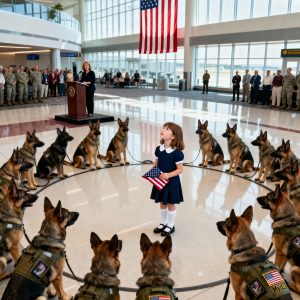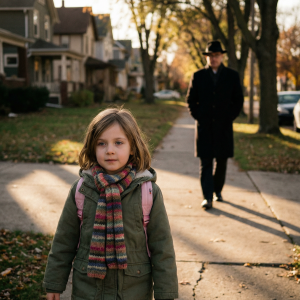The barracks fell silent when the commanding officer revealed what those marks really meant 💔💔
When she first walked into the all-male garrison, whispers followed her every step. The atmosphere grew thick with skepticism and barely concealed disdain. Murmured comments drifted through the ranks: “What’s someone like her doing here?” “This isn’t a place for delicate flowers,” and “How long before she quits?”
What started as hushed criticism soon transformed into blatant harassment. During physical training, they’d deliberately exclude her from demanding drills, claiming they were “protecting” her. When she grabbed her gear for field exercises, snide remarks would follow: “Maybe try the kitchen duty instead—it suits you better.”
Each dawn brought fresh humiliation. The relentless taunting became her daily reality. “Maybe if you tried harder, you’d keep up with the men,” they’d sneer during morning runs. Others would chime in during combat training: “Watch those manicured hands—wouldn’t want to chip anything important.”
Then came the day that changed everything. As she dressed after physical training, several soldiers caught sight of the deep, jagged marks etched across her shoulders and spine. The reaction was immediate and cruel.
“Whoa, check that out,” one soldier called out mockingly. “Looks like someone had a rough weekend.”
“Did you tangle with a wild animal?” another added with a laugh.
She froze, pulling her shirt closer, but couldn’t escape fast enough. Tears began streaming down her face as she sank onto the bench, overwhelmed by their cruelty. The laughter only grew louder—until heavy footsteps approached the doorway.
The commanding officer stepped inside, taking in the scene: a woman hunched over in distress while soldiers around her erupted in amusement.
“What exactly do you think you’re celebrating?” His voice cut through the room like a blade.
Every sound died instantly. The soldiers straightened, suddenly finding the floor fascinating.
Then came the revelation that shattered their assumptions.
“You’re mocking one of this nation’s most decorated operatives,” the officer declared, his tone ice-cold. “While you were learning to tie your boots, she was already serving in classified operations. Those marks you find so amusing? They’re from shrapnel and enemy fire during an extraction mission where she single-handedly pulled six wounded soldiers to safety under heavy combat.”
The room became a tomb. Grins melted into expressions of horror and shame.
“She took that damage saving lives while under direct assault,” he continued, scanning each face. “And your response is to ridicule her sacrifice.”
“Such behavior is beneath any uniform.”
After what felt like an eternity, one soldier found his voice: “Ma’am… why didn’t you say anything about your background?”
She raised her head slowly, brushing away the tears, and spoke softly:
“I came here to serve, not to parade my history. The mission was what mattered, not recognition.”
Gradually, hands began extending toward her—first one, then another, until every soldier in that room offered their respect.
“I owe you an apology… and my gratitude,” the youngest recruit said, his voice barely above a whisper.
From that moment forward, everything shifted. No longer was she viewed as an outsider who didn’t belong. She had become something far more valuable—a living reminder of what true courage looks like.





